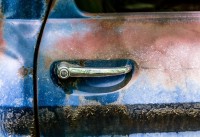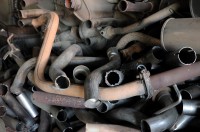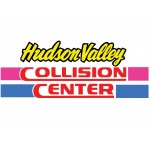Avoiding Used Car Disasters
A wave of used cars, kept by people during the Great Recession, appear to be hitting the market, lowering prices and likely to spark a buying binge. But, it can be tough to spot a rebuilt wreck even when you’re watching for it, so here are some tips from Hudson Valley Collision Center .
Here in Newburgh and throughout NY , we often hear about a wide range of scams targeting used car buyers. Though nothing replaces hiring a mechanic to inspect any car you’re seriously considering, there are some telltale signs to watch for to help narrow your choices:
•Inspect each body panel for scratches, dents, or rust. Tape marks along fender edges or under windows could indicate paint work, and inconsistent gaps, mismatched paint or one foggy and one clear headlight, could mean shoddy body work and a fair bet something is also wrong under the hood. 
•Another body repair indication is the presence of body filler under the paint, which can be detected if running a magnet along fenders and doors, fails to pull toward the car.
•Check tires for even tread wear. New tires could mean hidden problems.
•Rust on hinges or bolts inside the doorjamb could mean the car’s been water damaged, as can a moldy or musty smell inside the car or trunk.
•Greasy, black residue in the tailpipe could indicate the engine is burning oil.
•Electrical problems, which can be indicated by malfunctioning electrical parts or a stubborn warning light, can mean especially expensive and time-consuming repairs.
•Mileage over 100,000 likely means repairs needed sooner.
A slew of scams include:
•Title washing – removes the “salvaged” status from a vehicle after a major repair following a bad crash or natural disaster.
•Curbstoning – Is when car dealers pretend to be private sellers by posting ads that way, to avoid state and federal regulations. Check to match the name on the title with the seller’s driver’s license.
•Odometer fraud means someone lowers the mileage on the odometer. If possible, check the vehicle’s maintenance records to see if they match the odometer reading
•Escrow scams involve a seller telling you to put money in an “escrow account,” which then vanishes along with the vehicle. If an escrow account is absolutely necessary, make it a secured payment network, and find out what recourse you have if you get scammed.
•Protect yourself from sellers slapping fake certified stickers on uncertified vehicles so they can jack up the price, by knowing that certified used cars come only from franchised dealers.
•Bait and switch scams can be avoided by researching the value of the used cars you’re interested in; the Kelley Blue Book is a good start.
We strive to bring you relative content from Hudson Valley Collision Center in Newburgh , NY .
Sources: DMV.org, autoblog.com, msn.com









Social